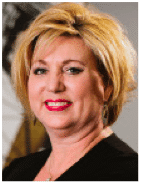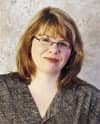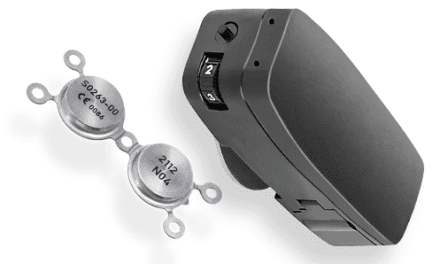The American Board of Audiology (ABA) has announced the first specialty examination in audiology (see News). The Board Certification in Audiology with a Specialty in Cochlear Implants program is the result of 2 years of work by a task force of experts in cochlear implants. In 2001, with support from the three manufacturers of cochlear implant systems (Cochlear Americas, Advanced Bionics and Med El), this group of experienced audiologists, speech language pathologists, and educators was gathered to begin the work of identifying the knowledge and skills that would be required to be considered a cochlear implant specialist.
Why specialty certification?
The need for expertise in this highly specialized area has been evident by the number of training courses provided by audiology groups and cochlear implant manufacturers to prepare audiologists to work with cochlear implant patients. As the ABA began to develop the specialty certification tier of its certification program, cochlear implants was a natural fit for the first program. The specialty certification examination also identifies a knowledge set that serves to define essential content for educational institutions in audiology, as well as for in-service training.
For audiologists already active in the field of cochlear implantation, this is an opportunity to be part of a movement that will elevate the role of the cochlear implant audiologist in facilities across the United States. Successful completion of this certification exam will verify broad based knowledge in the discipline being tested and identify audiologists with this specialty more easily.
How was the exam developed?
The ABA Cochlear Implant Task Force contracted with Applied Measurement Professionals, Inc, a nationally recognized measurement consulting firm, to develop an assessment of a core body of knowledge representative of professional practice in the field of cochlear implantation. To determine the core knowledge, a national job analysis study was conducted that surveyed practitioners in cochlear implantation to identify tasks that were performed routinely and considered important to competent practice. Once these content areas were identified, an extensive test writing and validation process was undertaken to complete the examination.
What is the content of the examination?
Through the job analysis, the Task Force identified competencies in eight key areas:
• Candidacy;
• Counseling/expectations;
• Surgical considerations;
• Programming principles and speech coding;
• Device operation;
• Troubleshooting;
• Rehabilitation, and
• Outcomes
A content outline, available in the application handbook, provides more detail for each of these areas. The test consists of 100 questions.
What qualifications do I need to sit for the Cochlear Implant Specialty examination?
Applicants must currently hold Board Certification in Audiology or be eligible for such, and have verified experience working with cochlear implants.
How do I take the Cochlear Implant examination?
Dates and venues for the first two administrations of the examination in 2005 have been set. The first coincides with the 10th Symposium on Cochlear Implants in Children in Dallas, Tex, on March 19, 2005. The second test opportunity will be on the morning of Sunday, April 3, following the AAA convention in Washington DC. The application handbook, and more specific registration timelines, can be downloaded from the ABA Web site: www.americanboardofaudiology.org.
Correspondence can be addressed to HR or Cheryl DeConde Johnson, EdD at [email protected].
| Cheryl DeConde Johnson, EdD, and Pat Chute, EdD, are cochairs of the American Board of Audiology Cochlear Implant Specialty Certification Task Force. DeConde Johnson is a senior consultant with the Colorado Dept of Education and is coauthor of the Educational Audiology Handbook; Chute is a clinical audiologist and associate professor at Mercy College, Dobbs Ferry, NY. |




